Reflections on CoP27
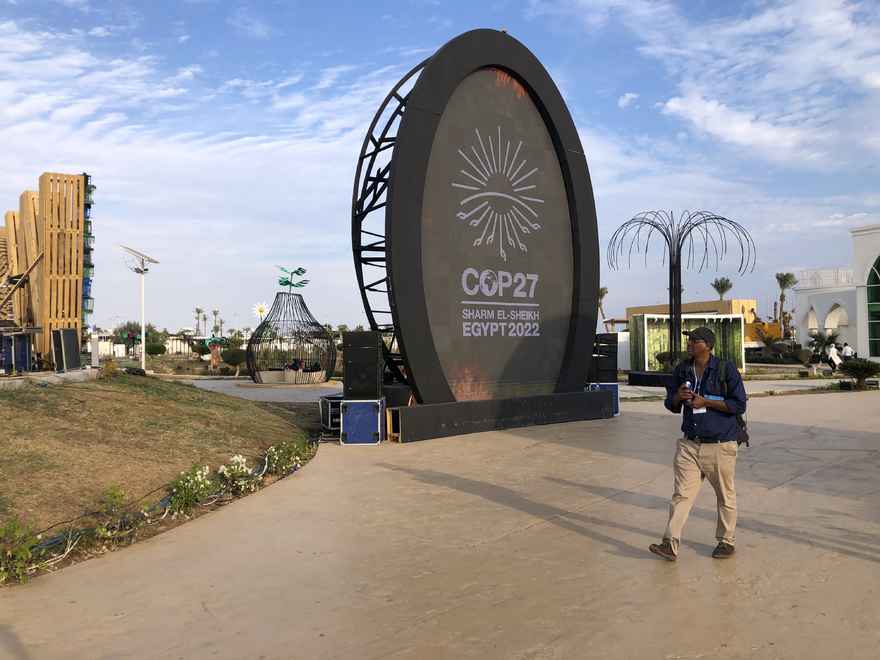
This article was written by Gaia Education board member Tim Clarke on his reflections of going to CoP27 in Sharm El Sheikh, Egypt.
Now that a bit of dust has settled on the frenetic networking and deal-making of COP27, the Gaia Education COP delegation team, Fasil Bogale (CFO) and Tim Clarke (Trustee), have had time to
reflect on the successes and challenges of the event. They are also asking themselves how, if at all, Gaia Education should continue to interact with COP in the coming years.
Why did Gaia Education go to COP this year?
Many NGOs in our networks decided not to go to COP this year, deeply frustrated at the lack of progress on all the Declarations and Agreements of previous years, and wary of coping with the security, visa restrictions and high costs imposed by the hosts – the Egyptian authorities. For Gaia Education, we were particularly disappointed that the Joint Ministerial Declaration made by Ministers of Education and Environment at COP 26, committing to ‘The integration of sustainability and climate change in formal education systems’ did not seem to have galvanised any concrete response in the lead up to COP27.
However, we had taken the declaration seriously, and in 2022 we had formed a consortium with the Association of African Universities, the All Africa Students’ Union and the SDG Center for Africa to create an SDG and Climate Change Digital Short Course programme for all African university students, signposting them to different avenues of action on the ground.
"Our Vision was for every African higher education student – 20 million of them – to receive a basic introductory course on Climate Change and the SDGs, allowing each student to become empowered to lead the change process: the way they lived, the the way their families lived, the way their communities lived. Ambitious, but do-able"
Since COP27 was taking place on African soil, in Sharm El Sheikh, Egypt, we felt it important to be there : to network for funding and partnerships, as well as seeking international and governmental institutions who were also taking the Declaration seriously. We attended in the second week of the conference, and on 14th November we participated in a side event entitled, ‘Mobilising youth & transforming communities - embedding the SDGs in formal & informal education’. There, we launched the African Universities proposal, along with the SDG Center for Africa and the All Africa Students Union. The rest of the week was spent networking and promoting the programme.
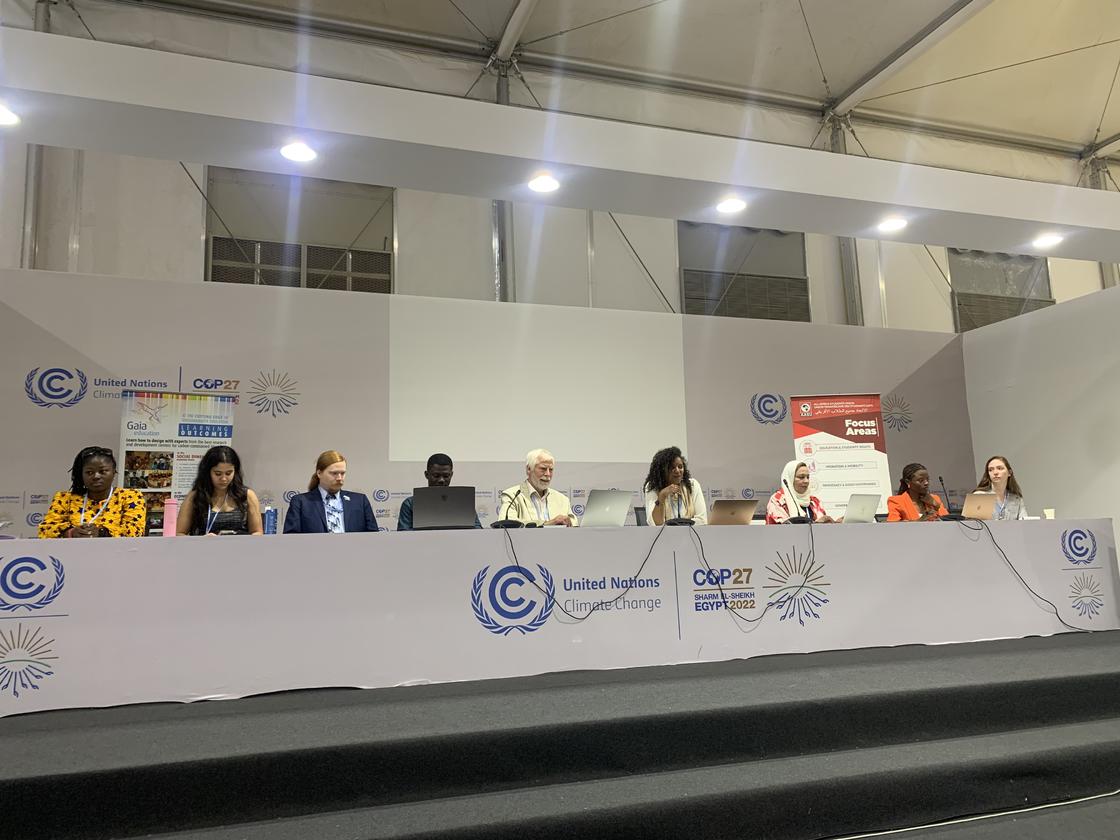
Overall Assessment of COP27
So, what can we say about COP27? Opinions vary. For some, the Loss and Damage agenda had some success, pushed notably by small island states and developing countries. An agreement was reached in extremis to set up a Loss and Claims compensation fund, with two special inter-sessional meetings to be organised next year to look at modalities. The PM of Barbados, Mia Mottley, is spearheading a ‘Bridgetown agenda’ to generate trillions of extra dollars.
A successful innovation, pushed by UNFCCC, was the creation for the first time of a Children and Youth pavilion. This was by far the most exciting and dynamic place to be – Fasil and Tim spent a lot of time there. For others, the COP27 results were deeply discouraging. Whilst the 2015 COP21 Paris Carbon emission target of 1.5 C was still accepted, many argued that commitments to keep to it had gone backwards compared to COP26 in Glasgow, with many countries openly striking new gas deals. It will now require a 43% reduction in Carbon emissions by 2030 to keep to the target, which is close to mission impossible. On 8th December, the UK government announced the go-ahead for creating a new coal field in Cumbria – in flagrant breach of its international commitments. Leading UK Climate specialists have been unanimous in their opposition to this decision.
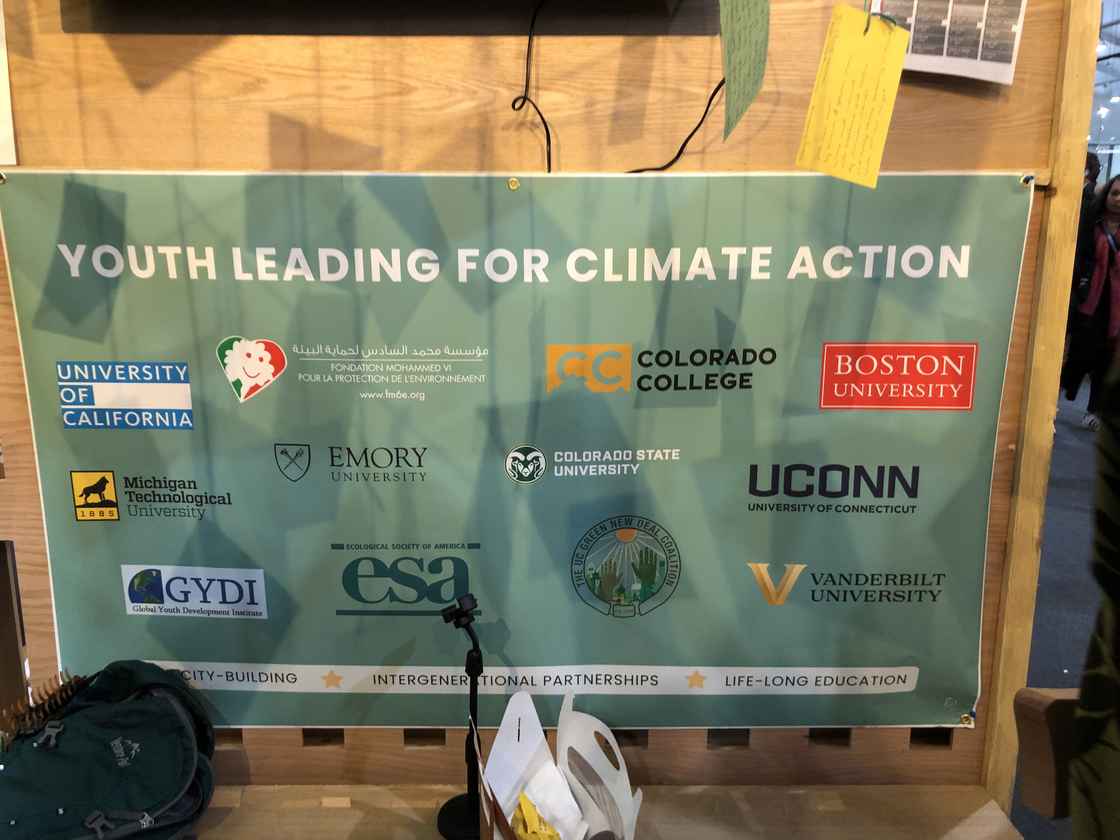
It was agreed to fix a work programme to scale up efforts by 2026. A new framework for Carbon market trading was outlined. But will anyone keep to these frameworks? It is hard not to be cynical - even more so when we note that, out of the 35,000 participants, there was a massive increase in the number of representatives from fossil fuel industries compared to previous COPs. Since COP28 is scheduled to take place in the UAE, we can expect this proportion to increase even more.
Indeed, there were many accusations of Egyptian ‘greenwashing’ of the conference, (that it was sponsored by Coca Cola tells us a lot) and restrictions on any form of demonstrations. There was a massive security presence. Vegan demonstrations seemed to be allowed, but noisy No Fossil Fuels, and Protection of Indigenous and Women’s’ Rights demonstrations were reduced to a minimum.
The special COP27 App for following events remained largely unused, mainly due to fears that its use would allow Egyptian security to have direct access to all personal emails!
And what about the Joint Declaration on integrating Education for Sustainable Development into formal Education? It seems to have disappeared without trace. .
A proposal from the NGOs for modifications to the UNFCCC texts to create funding for ‘Action on Climate Education (ACE)’ is moving at a snail’s pace, and there is not much else we can tell you at this stage. So overall, is Greta right about the Blah blah blah when it comes to COP’s international negotiations and agreements? It is certainly feels that way...
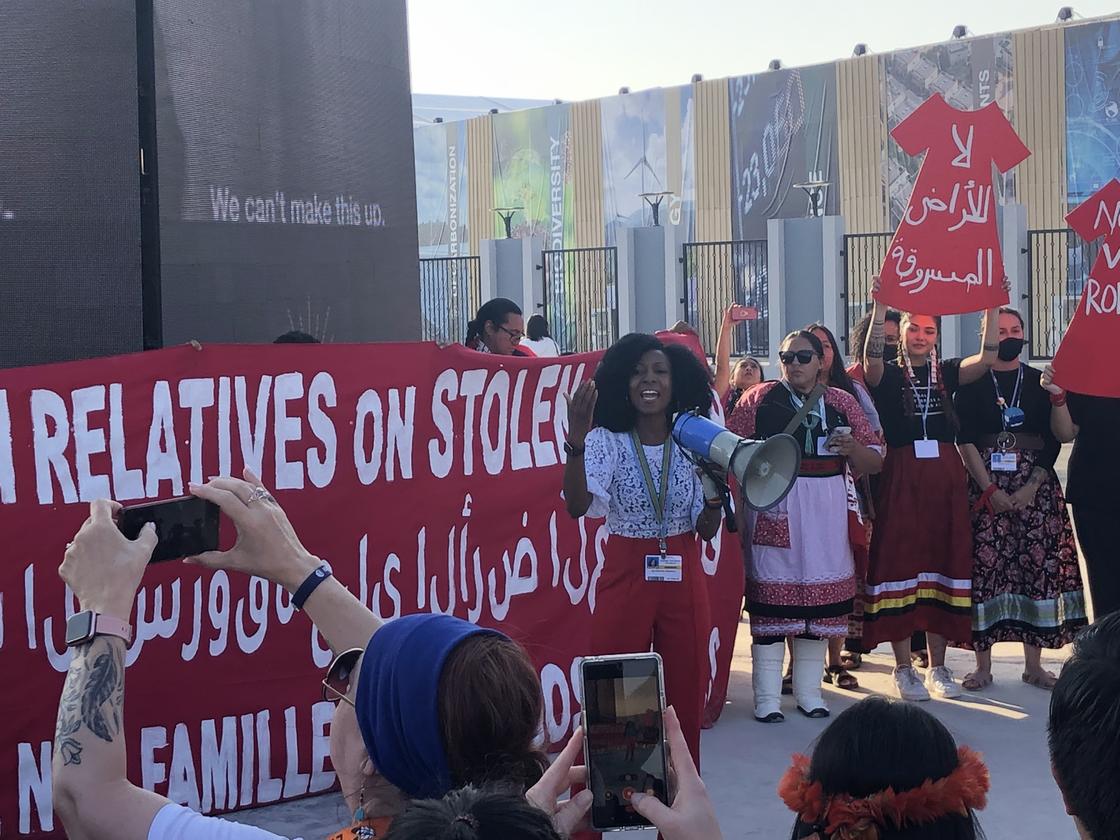
On the positive side... Gaia Education’s Networking efforts!
COP is a networkers’ paradise. You never know who you will bump into, and our trustee, Tim, is the most energetic networker we have ever known! In all he and Fasil engaged with a massive number of NGOs, Governments, UN bodies (including the Directors of the African units of UNDP UNEP, and UNESCO), universities, media groups, African Ministers of Environment, MPs and the assistant of Egypt’s Climate Change Ambassador. We hope that all these new or re-kindled contacts will lead to a breakthrough for our African Universities project. We will keep you posted.
Tim was particularly intrigued by Dr Fantastic, the self-proclaimed Ambassador of Kindness. He spoke at an event for Climate Change student Ambassadors organised by Ain Shams University, whose own brief Climate Change course has produced 1,000 ‘Ambassadors’ across Africa, with over 2,000 on the waiting list for their next course. Tim spoke very positively about this initiative at the end of the session, which resulted in Dr Fantastic nominating him as the 5,445 Ambassador of Kindness!
The Scottish Government representatives were present, but our attempts to engage with them did not succeed. Tim and Fasil fleetingly met the First Minister’s Chief Advisor, and the Head of their International Climate Change strategy. We will connect with them back in Scotland, as they have been traditionally very supportive of us. Tim and Fasil were very impressed by the many Youth leaders they met as well as the UNFCC’s Youth empowerment official who proved very helpful.
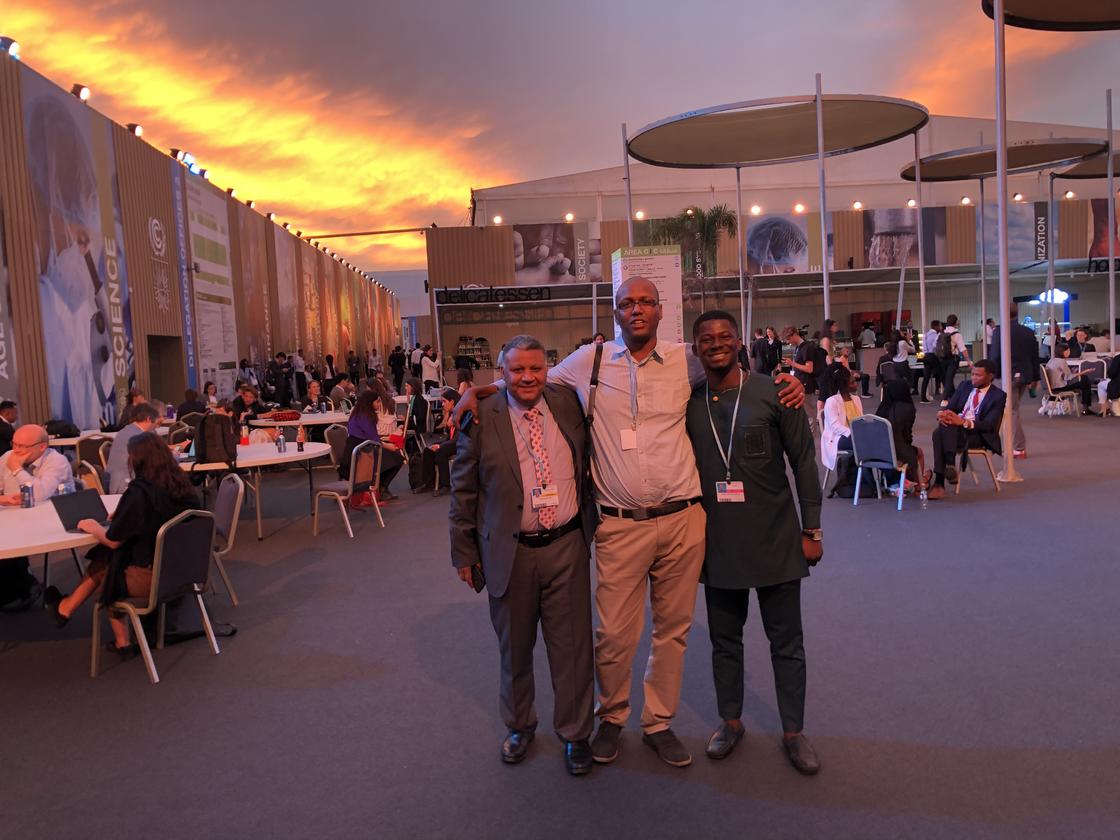
"We intend to follow up those youth links as we nurture the Gaian networks and link to other like-minded movements to cross-pollinate and support each other"
We were also hugely impressed by the COP Solutions Forum – a parallel event organised by SEKEM and Heliopolis University, bringing together policy makers and activists to deeply engage in trying to find solutions. We were delighted to have been able offer places in our GAIA Education delegation for one representative of the All Africa Students’ Union, and two
places to the SDG Center for Africa, for whom it was their first COP experience. (GAIA Education is officially accredited).
Competition for media exposure was intense, but we did get an article written by University World News and a Kenyan media agency which will publish something
new soon. And the COP27 media team have an interview of Tim on their Instagram page. So, Gaia Education certainly made the most of the opportunity of COP27.
"But now, we have to ask ourselves big questions about whether our air-miles, efforts and presence at COP events are still justified, as the momentum of the Paris Agreement seems to slow ..."
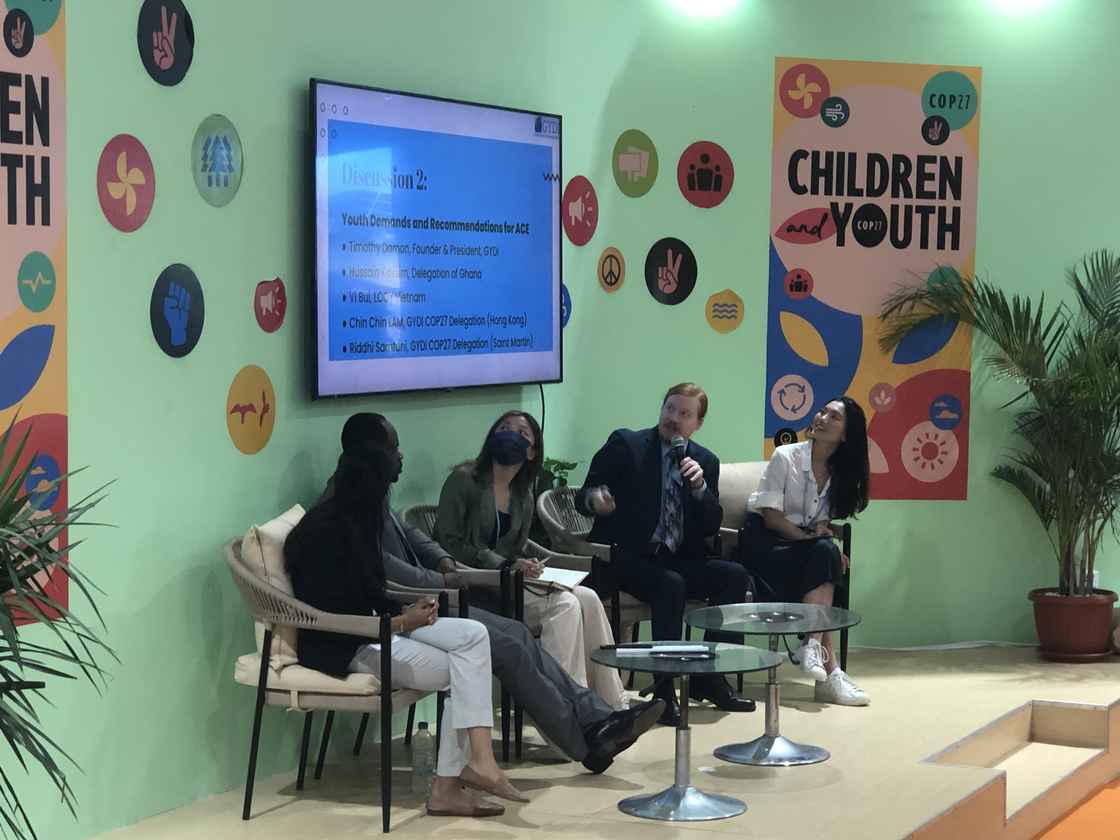
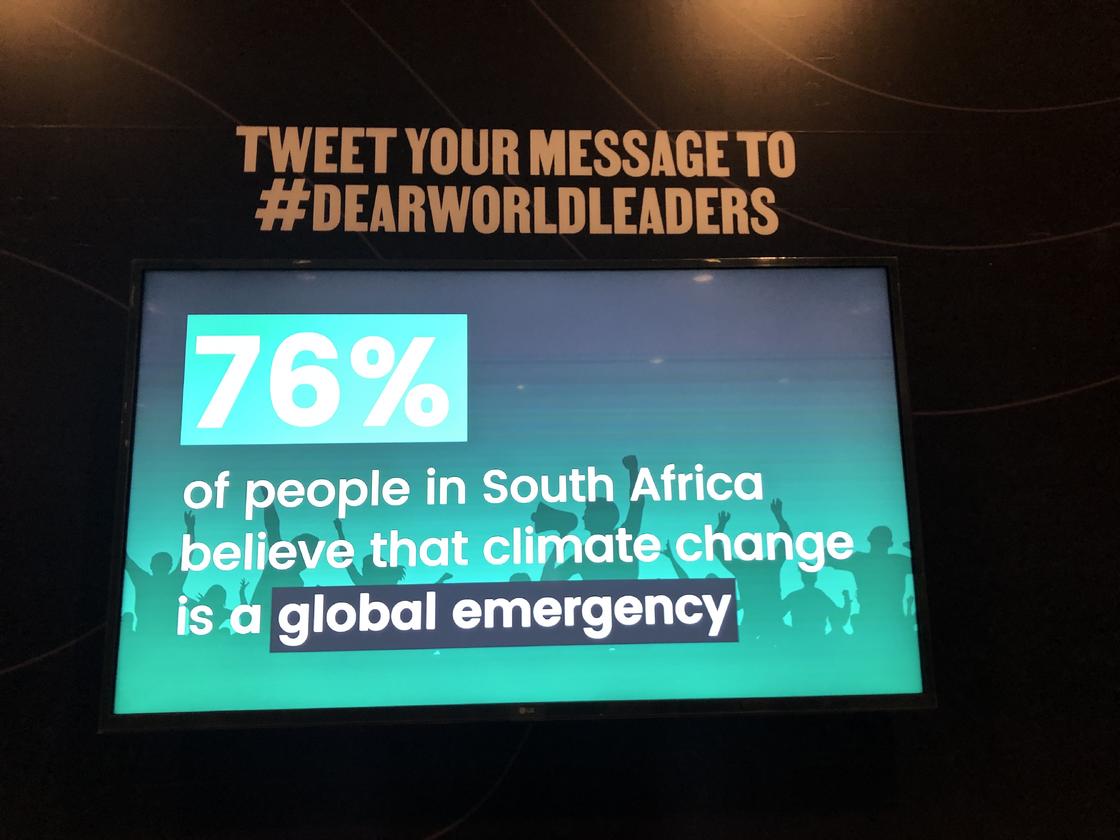
Fasil and Tim’s conclusions
Frankly, for Fasil, the justification is no longer there: ‘Cop27, in many ways, was the ultimate reflection of the 'Worldview we are currently stuck in, managed by governments, corporations and even most NGOs.
This year it felt like a trade show shackled by global corporate influencers and governments that, in many ways, depend on the world continuing the use of fossil fuels. Even worse from Gaia Education's view, the promotion of nuclear power as the ultimate solution to our current climate issues was very present.
Conspicuously missing from the event was a space for civil society to remind our governments of our outrage about climate change and its devastating impact on people's lives - and the need to change our behaviours instead of promoting business as usual and modern but risky technology.
the world, we start with tiny acts and few people, but once the ball gains momentum nothing will stop us.’
The debate continues for Gaia Education, and we will consider the factors of location, project relevance, COP treaty progress, integrity and ethics, and COP alternatives, before we decide on whether going to the next COP in UAE
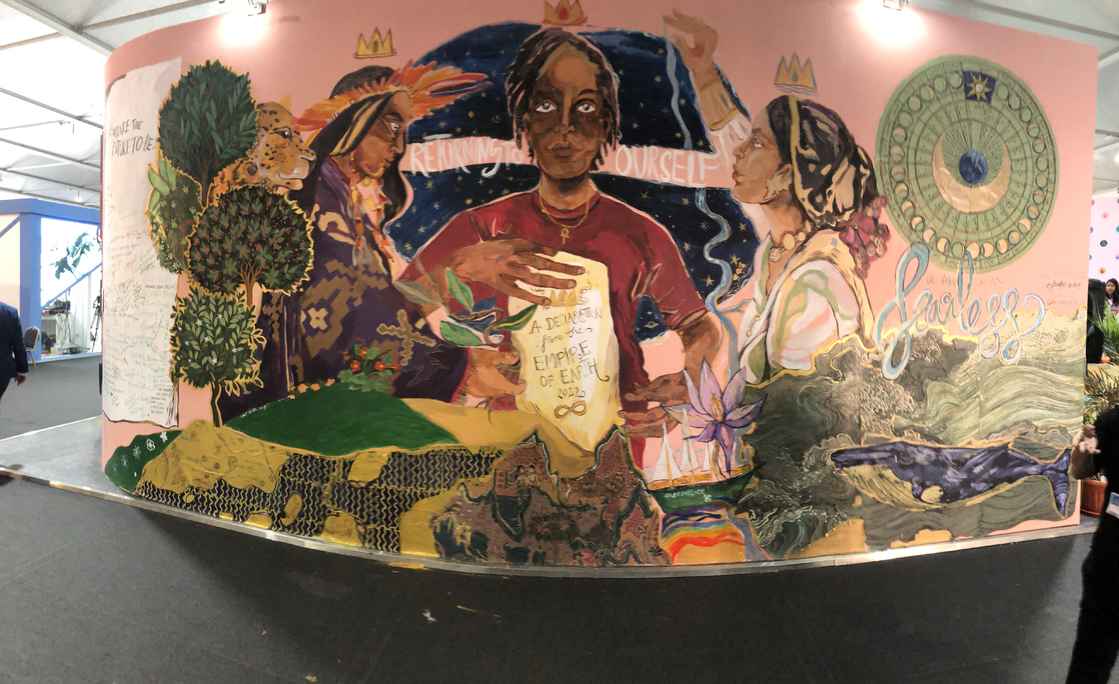
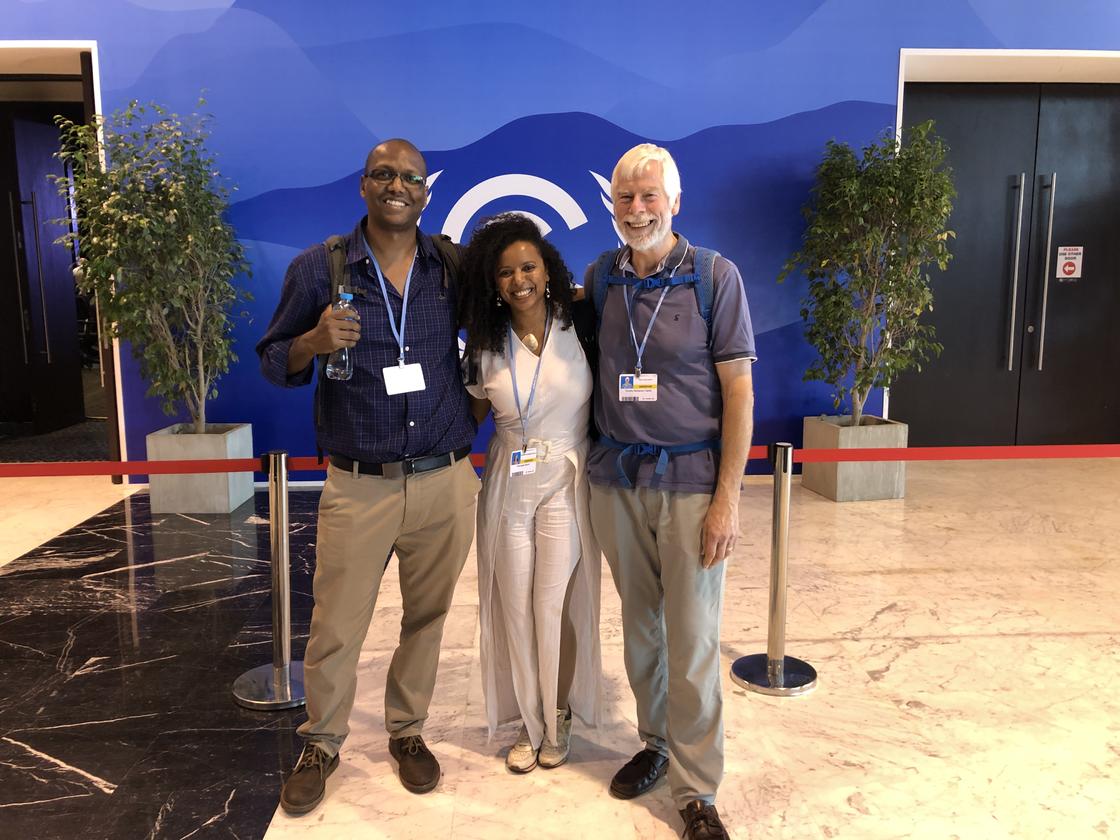


0 comments
Leave a comment